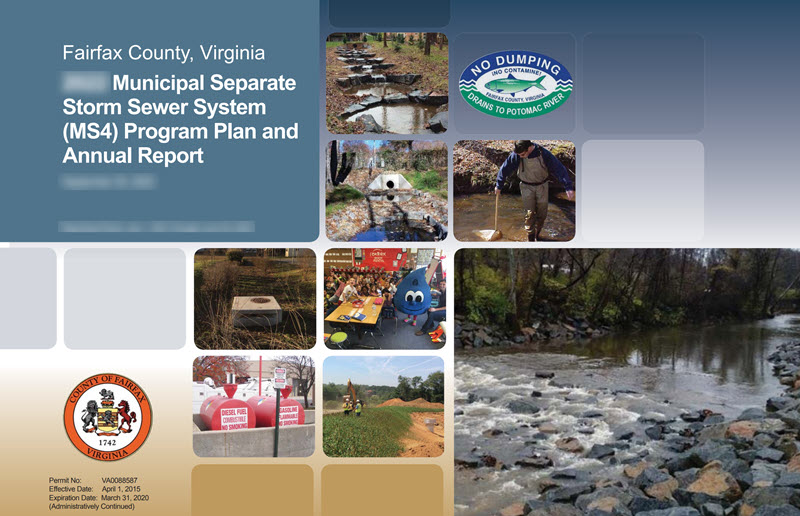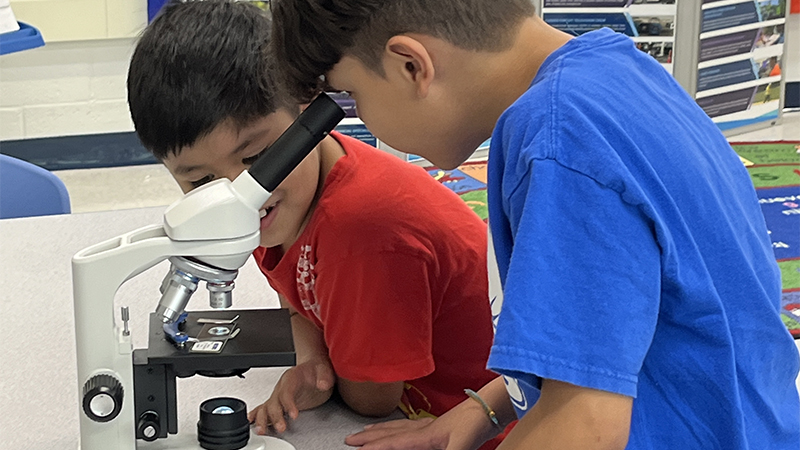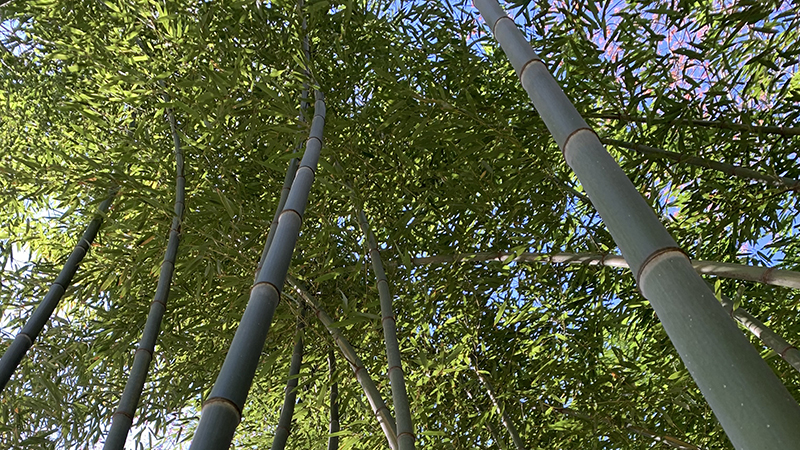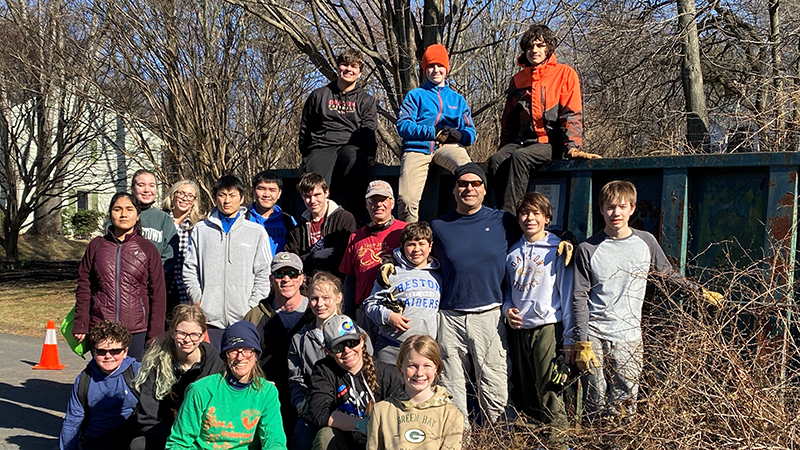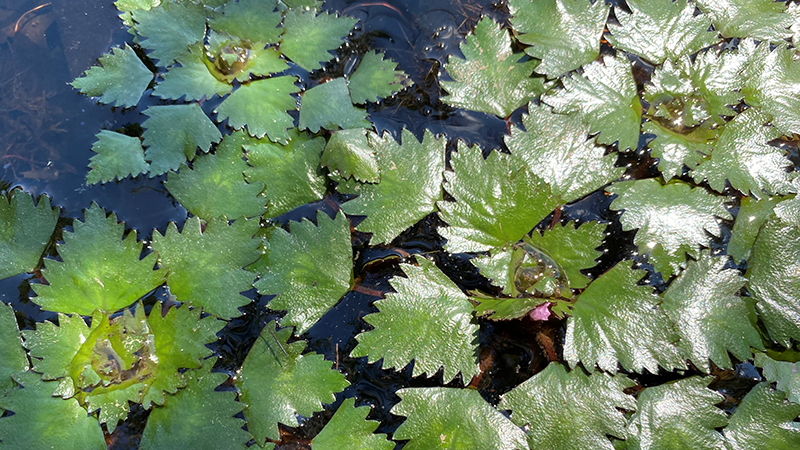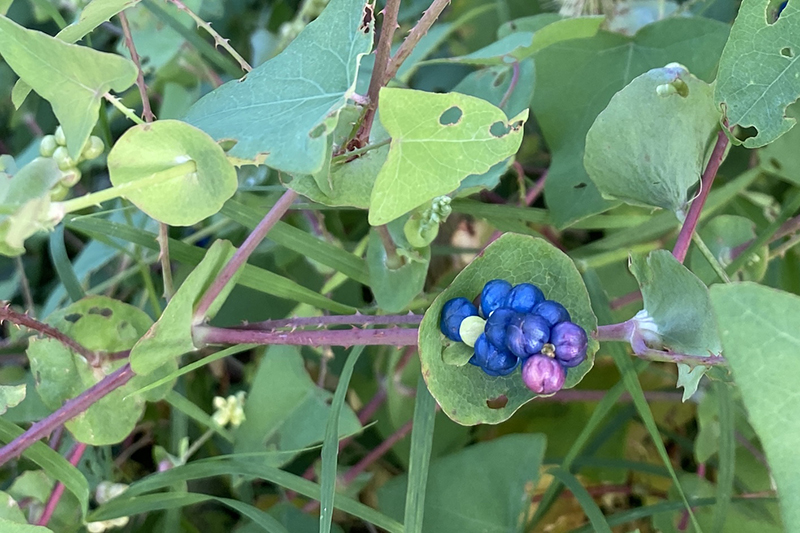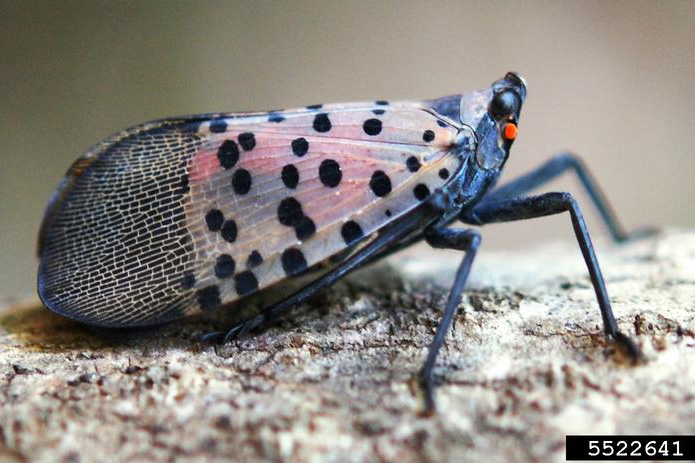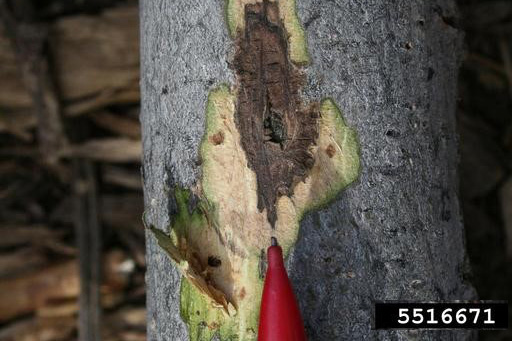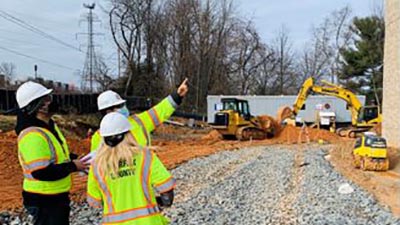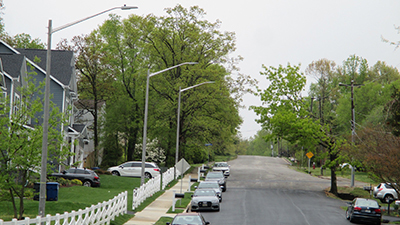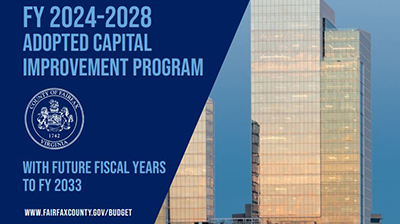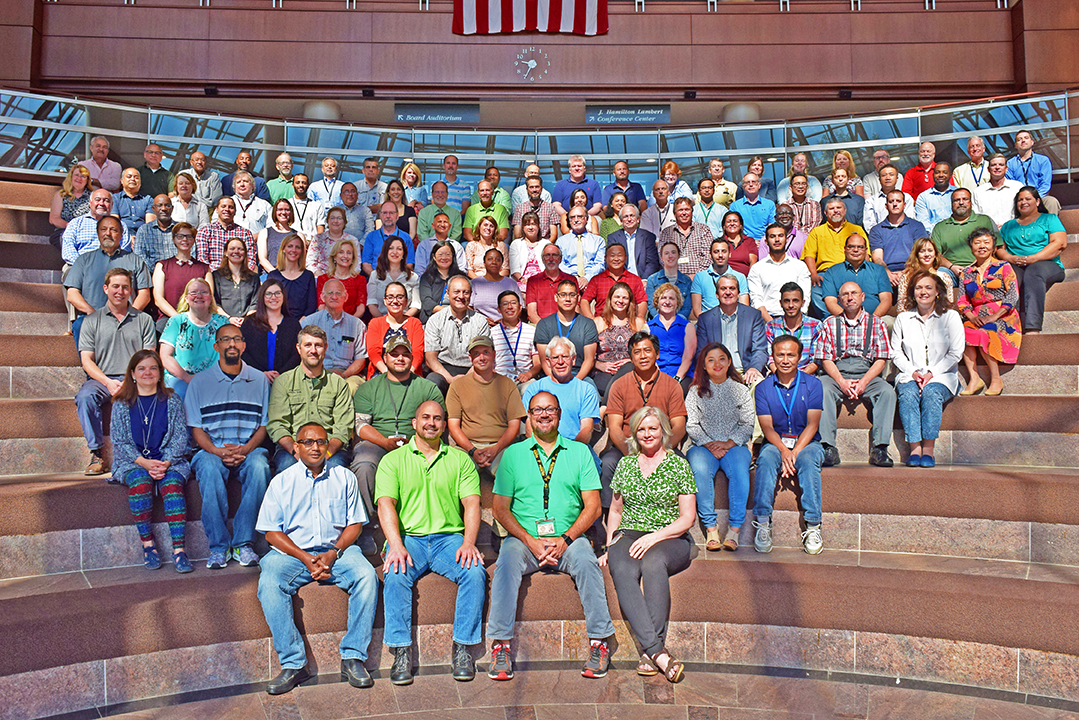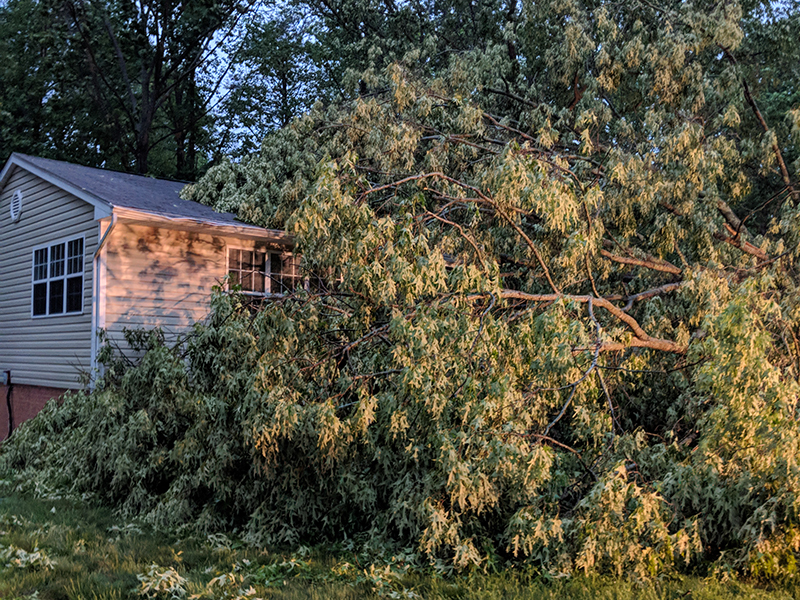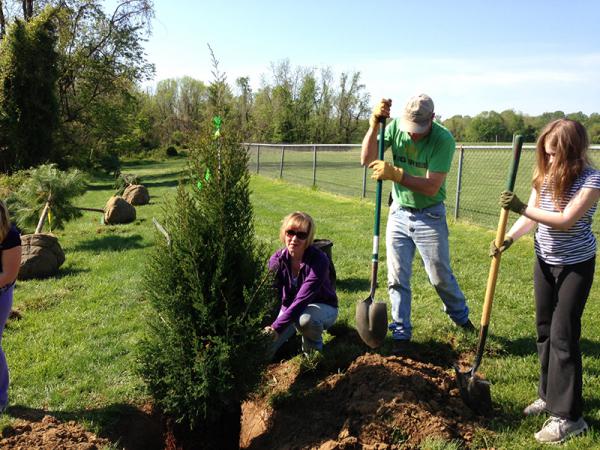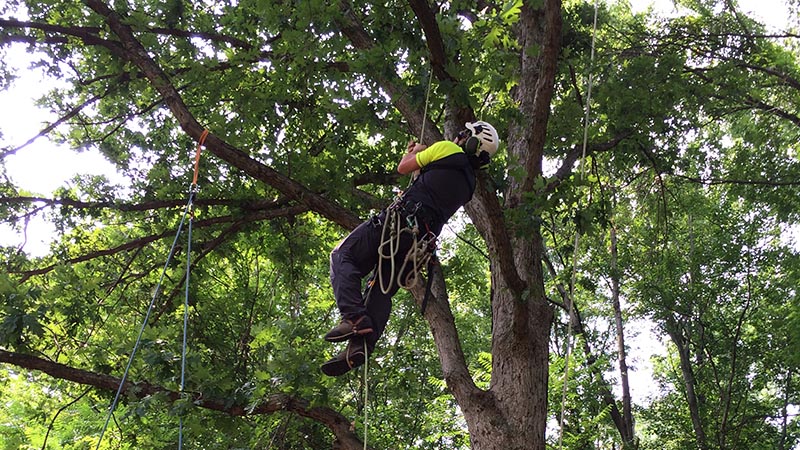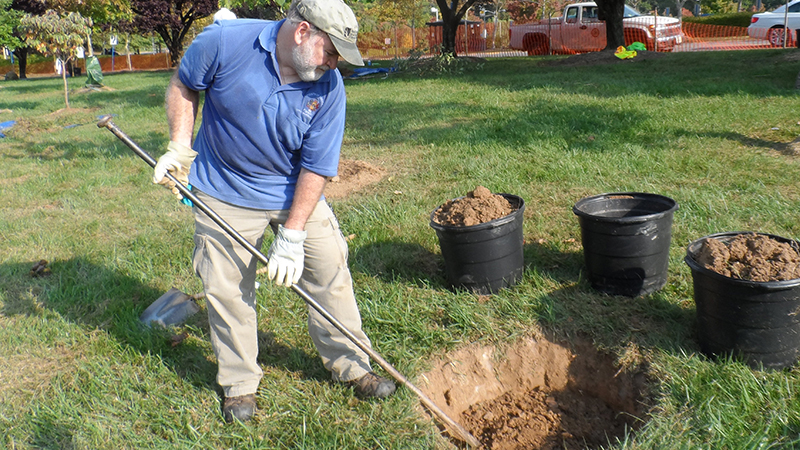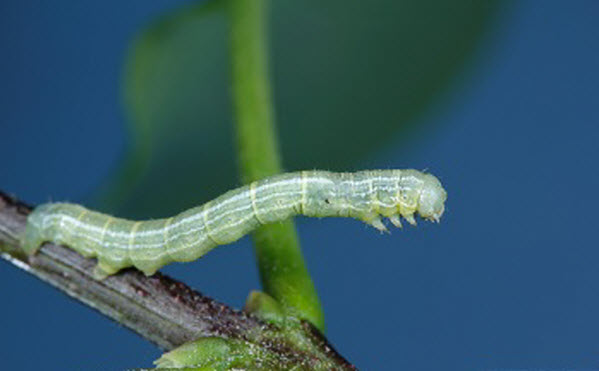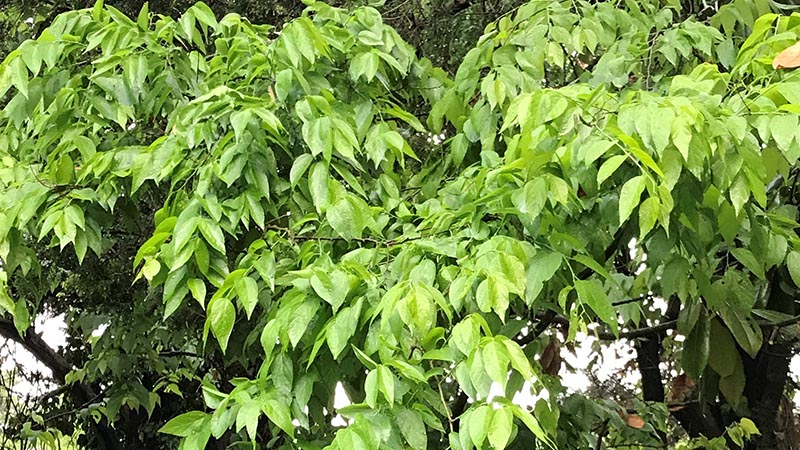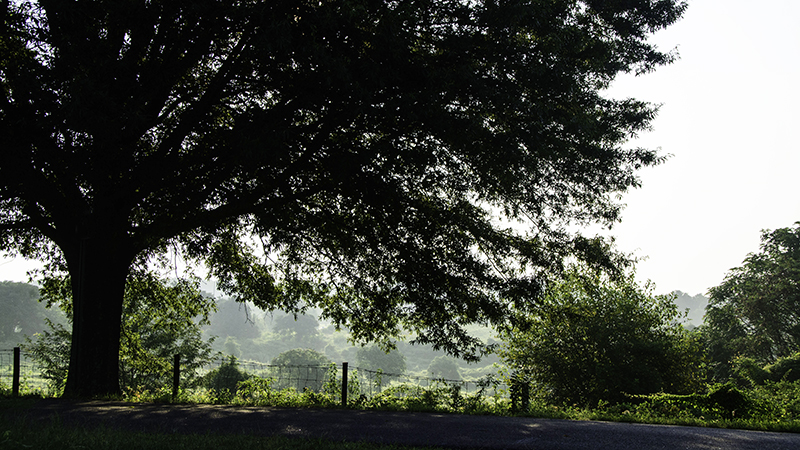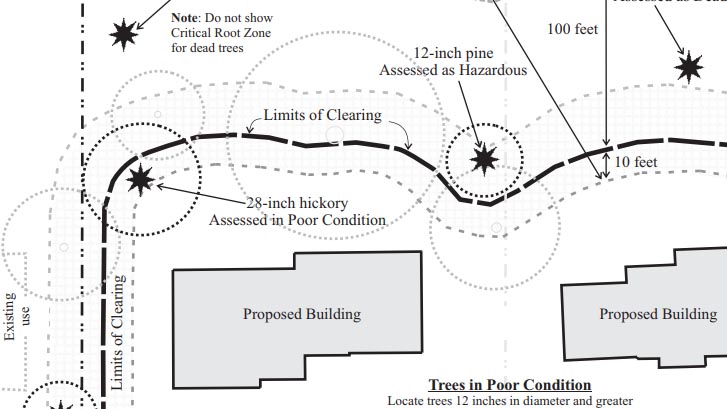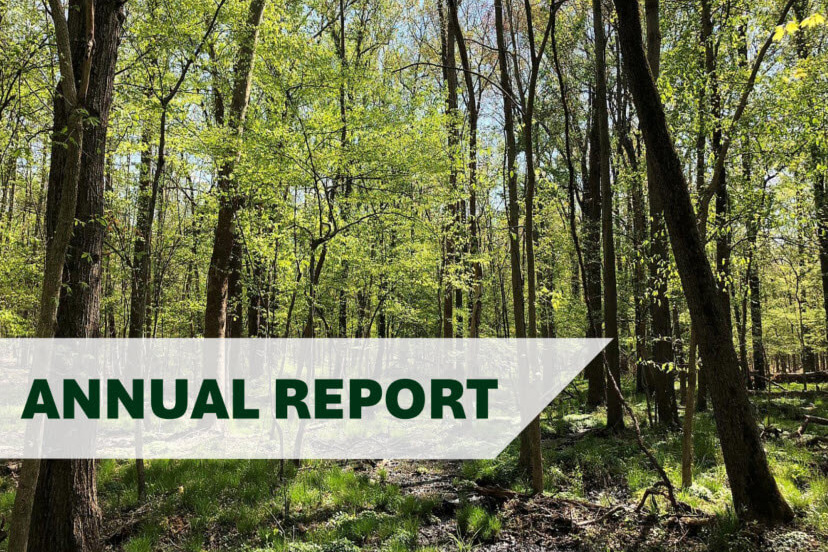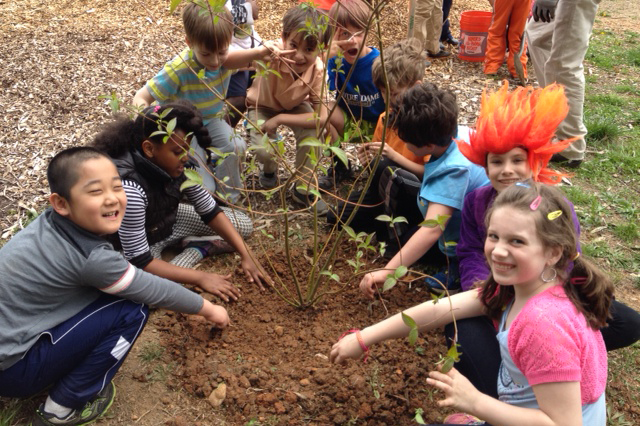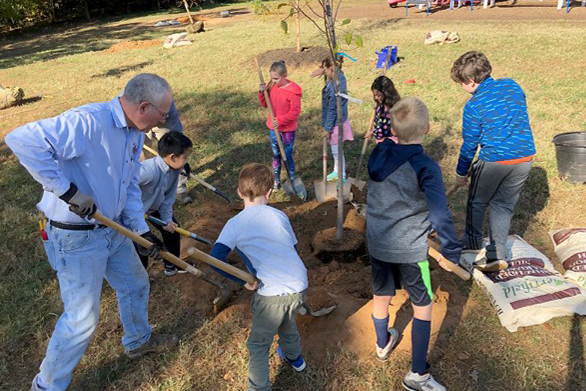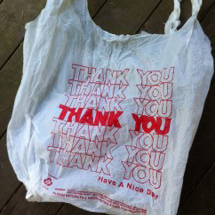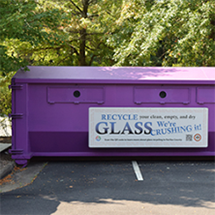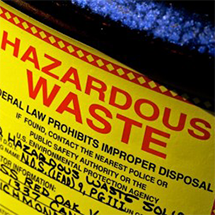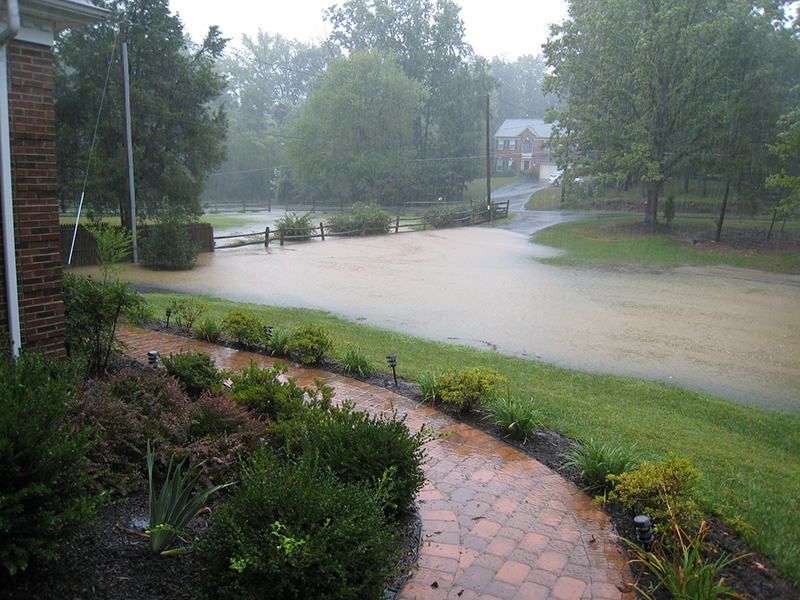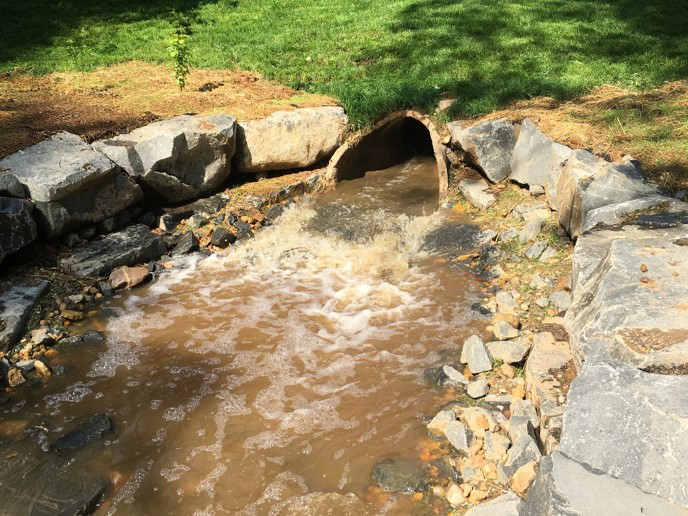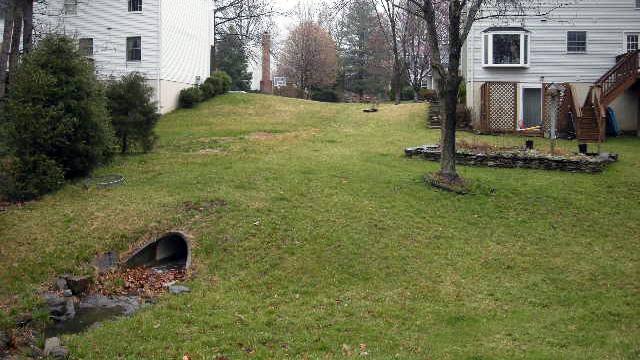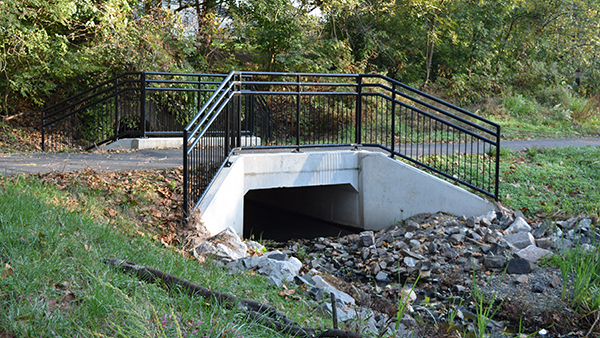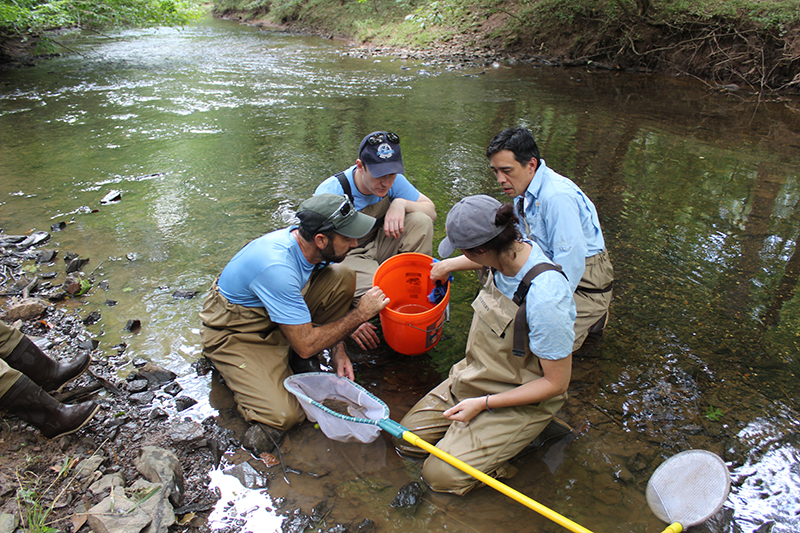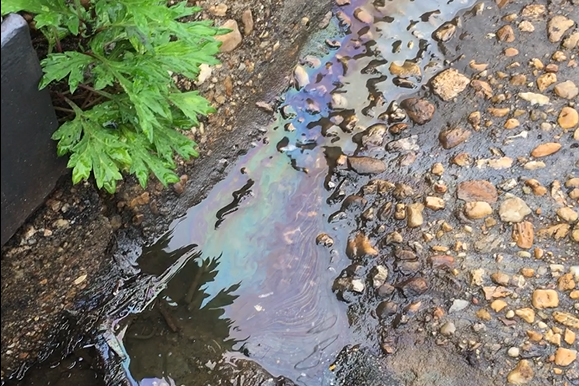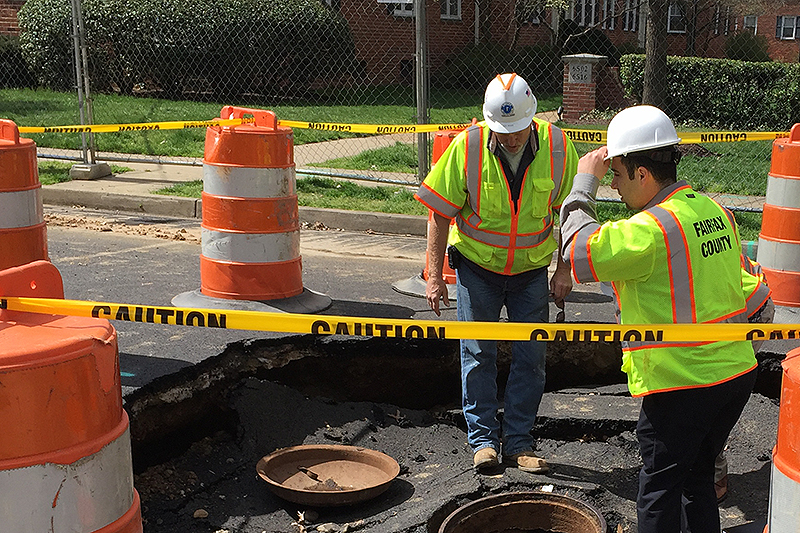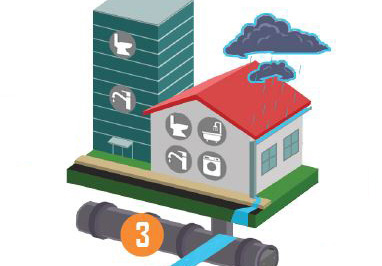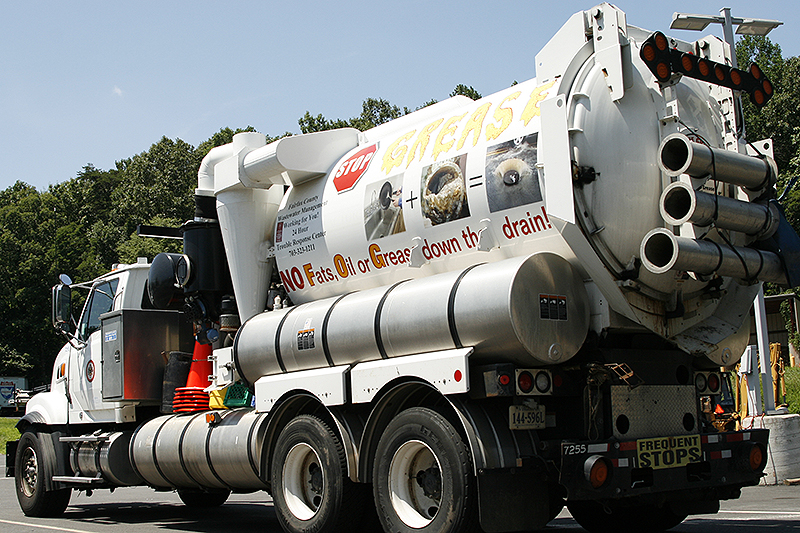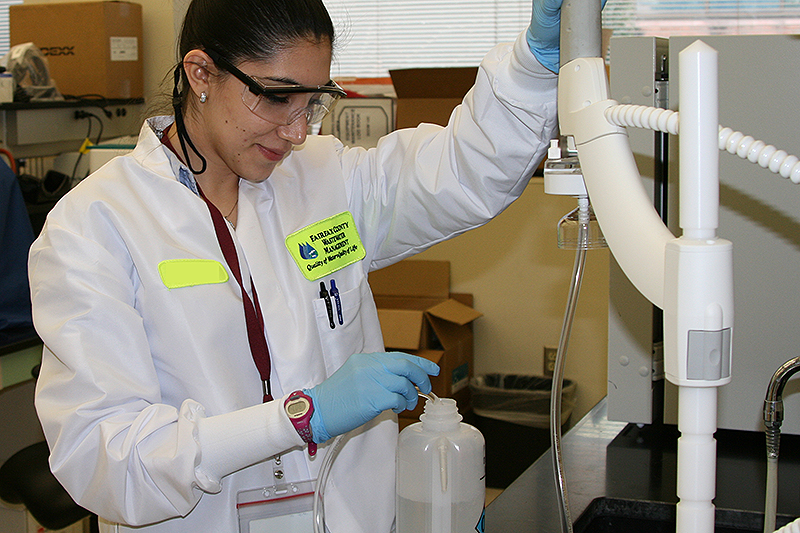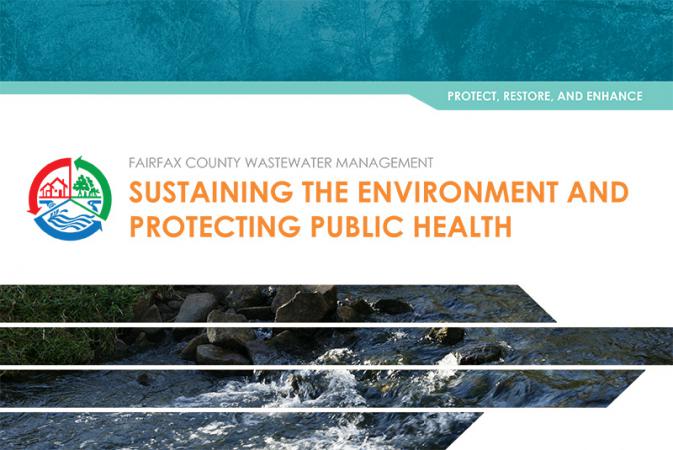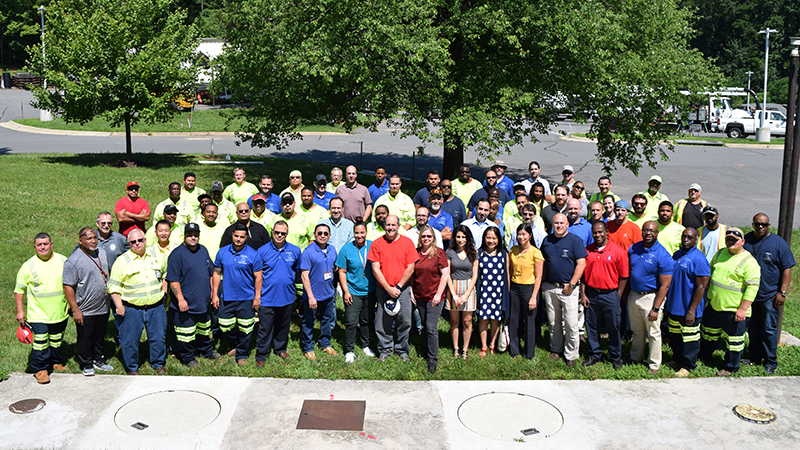Water Resources and Infrastructure
If you are experiencing a life-threatening emergency, call 911.
Get Help Now! - Call our 24-Hour Customer Communications Center (CCC): 703-323-1211 | TTY 711.
For non-emergency problems, visit Report a Problem.
Stormwater
The Stormwater Management Program protects water quality in over 800 miles of streams by planning, building and maintaining infrastructure, assessing stream health, preventing pollution, and enforcing regulations. Stormwater is not cleaned when it goes into a storm drain. Learn how Fairfax County continues to protect and restore our stream valleys.
Trees
Planting trees in our yards, parks, and along our streams can greatly improve water quality. In Fairfax County, more than 50% of the land is covered by tree canopy, which filters stormwater before it enters our watershed streams and conveyance systems. Learn how Fairfax County raises awareness of the essential role of trees to our watershed.
Water's Journey
Drinking Water - Wastewater - Stormwater
Clean water is our most important resource. To keep water clean for future generations, we need to know where it comes from, how we use it, and where it goes after it leaves our homes and businesses. Find out how drinking water, wastewater and stormwater runoff are managed by separate systems in Fairfax County.
Water Resources News
Exciting Changes Within Public Works
Fairfax County relies on the newly named Water Resources Infrastructure to safely manage stormwater, wastewater, and our urban forest. Their programs protect and restore our vital natural resources, serve the community, and safeguard the environment and public health. Their new facility (opening in 2026) will house them all under one roof.


